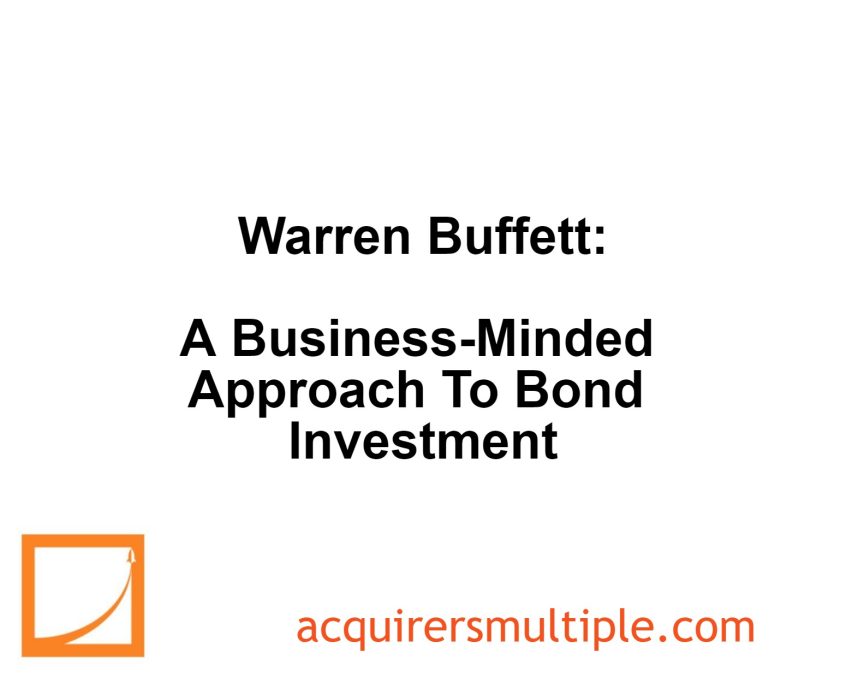In his 1984 Berkshire Hathaway Letter, Warren Buffett discussed his bond investment strategy where he treats bonds as businesses. An approach that might seem unconventional but is quite insightful. Typically, bond investments are viewed merely in terms of yield.
For example, in 1946, investors purchased 20-year AAA tax-exempt bonds yielding about 1%, effectively locking in a maximum 1% annual return, a poor business decision when compared to other opportunities. At the same time, profitable businesses were available that could yield significantly higher returns on book value.
Such an analytical, businesslike perspective, advocated by Ben Graham in The Intelligent Investor, suggests that many poor investment decisions could be avoided if bonds were evaluated like businesses, focusing not just on yield but on potential returns relative to price paid.
Here’s an excerpt from the letter:
Our approach to bond investment—treating it as an unusual sort of “business” with special advantages and disadvantages—may strike you as a bit quirky. However, we believe that many staggering errors by investors could have been avoided if they had viewed bond investment with a businessman’s perspective.
For example, in 1946, 20-year AAA tax-exempt bonds traded at slightly below a 1% yield. In effect, the buyer of those bonds at that time bought a “business” that earned about 1% on “book value” (and that, moreover, could never earn a dime more than 1% on book), and paid 100 cents on the dollar for that abominable business.
If an investor had been business-minded enough to think in those terms—and that was the precise reality of the bargain struck—he would have laughed at the proposition and walked away. For, at the same time, businesses with excellent future prospects could have been bought at, or close to, book value while earning 10%, 12%, or 15% after tax on book.
Probably no business in America changed hands in 1946 at book value that the buyer believed lacked the ability to earn more than 1% on book. But investors with bond-buying habits eagerly made economic commitments throughout the year on just that basis.
Similar, although less extreme, conditions prevailed for the next two decades as bond investors happily signed up for twenty or thirty years on terms outrageously inadequate by business standards.
(In what I think is by far the best book on investing ever written—”The Intelligent Investor”, by Ben Graham—the last section of the last chapter begins with, “Investment is most intelligent when it is most businesslike.” This section is called “A Final Word”, and it is appropriately titled.)
You can read the entire letter here:
Berkshire Hathaway 1984 Shareholder Letter
For all the latest news and podcasts, join our free newsletter here.
Don’t forget to check out our FREE Large Cap 1000 – Stock Screener, here at The Acquirer’s Multiple:




